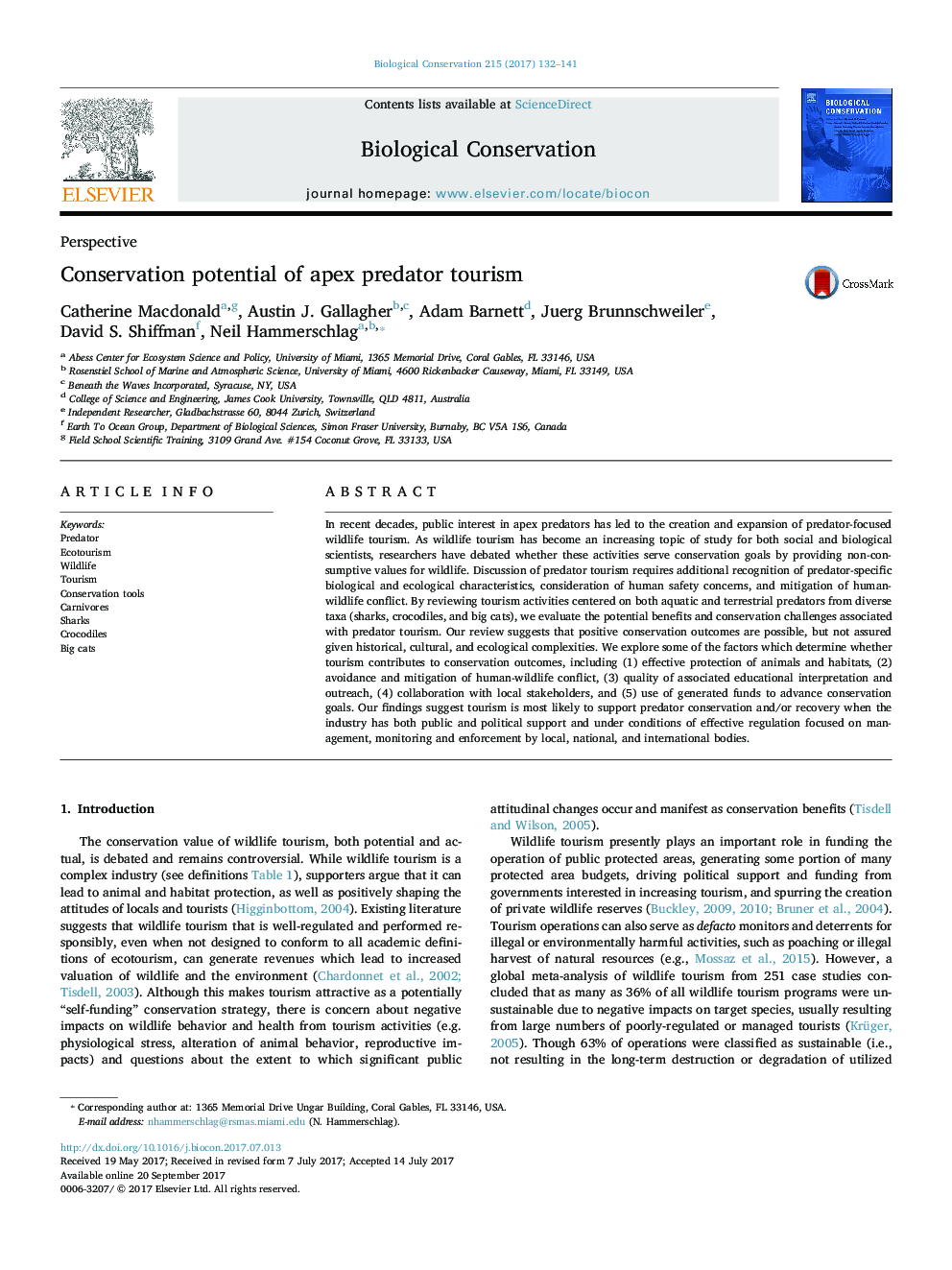| Article ID | Journal | Published Year | Pages | File Type |
|---|---|---|---|---|
| 5743010 | Biological Conservation | 2017 | 10 Pages |
â¢Predator tourism can contribute to predator conservation under some circumstancesâ¢The biological, ecological, and behavioral characteristics of predators create unique tourism and conservation challengesâ¢These challenges make it complex to offer safe, responsible, and environmentally appropriate tourism with predatorsâ¢Regulation, mitigation of human-wildlife conflict and habitat protection can help tourism conserve predator speciesâ¢Important factors in determining conservation success may be similar across diverse predator species
In recent decades, public interest in apex predators has led to the creation and expansion of predator-focused wildlife tourism. As wildlife tourism has become an increasing topic of study for both social and biological scientists, researchers have debated whether these activities serve conservation goals by providing non-consumptive values for wildlife. Discussion of predator tourism requires additional recognition of predator-specific biological and ecological characteristics, consideration of human safety concerns, and mitigation of human-wildlife conflict. By reviewing tourism activities centered on both aquatic and terrestrial predators from diverse taxa (sharks, crocodiles, and big cats), we evaluate the potential benefits and conservation challenges associated with predator tourism. Our review suggests that positive conservation outcomes are possible, but not assured given historical, cultural, and ecological complexities. We explore some of the factors which determine whether tourism contributes to conservation outcomes, including (1) effective protection of animals and habitats, (2) avoidance and mitigation of human-wildlife conflict, (3) quality of associated educational interpretation and outreach, (4) collaboration with local stakeholders, and (5) use of generated funds to advance conservation goals. Our findings suggest tourism is most likely to support predator conservation and/or recovery when the industry has both public and political support and under conditions of effective regulation focused on management, monitoring and enforcement by local, national, and international bodies.
